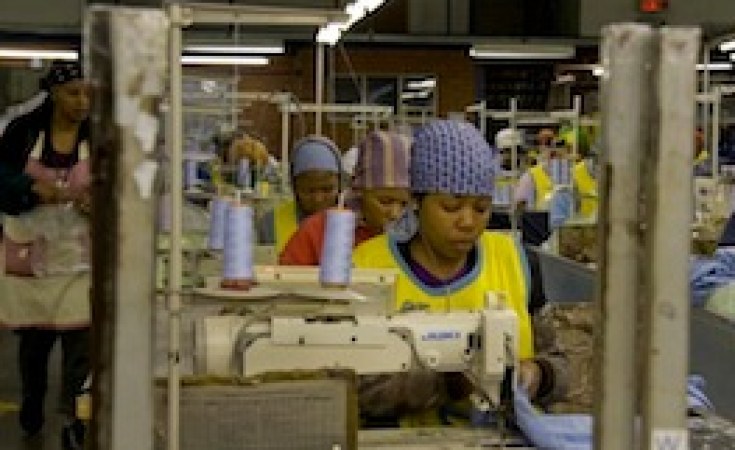Washington, DC — Legislation that has been credited with spurring expanded American trade with Africa received a late-hour extension from the United States Congress just before both houses adjourned for the year in the early hours of Saturday morning.
The new Africa-related measures, known as the Agoa Investment Incentive ACT of 2006, amend the original African Growth and Opportunity Act (Agoa), which was passed in 2000 to provide duty-free access to the United States for many African products. The entire trade package, which was headlined by legislation that normalizes trade relations with Vietnam, was adopted by the House of Representatives by a vote of 212-184 and the Senate by 79 to 9.
The bill, which is expected to be signed into law by President Bush before the end of the year, makes several revisions that will assist African textile producers who have been hard-hit by rising Chinese competition. The Africa measures in the 500-page trade bill take up about 10 pages and include three major provisions.
The first extends through 2012 the exemption that allows Africa's producers to use fabric from third countries to manufacture clothing, an important concession since most African countries cannot yet make their own cloth.
A second provision is designed to encourage clothing manufacturers in Africa to use fabric made in Africa where it is available. This would help blue jean producers in Lesotho, Mauritius and Kenya sell their surplus denim production to jean manufacturers elsewhere in Africa, who would, in turn, be able to import those jeans into the United States duty free. Under the new law, producers in Africa would have to use what fabric there is available or lose duty-free access.
A third provision would give duty-free access to African manufacturers of non-apparel textile products, if they use materials from less developed countries. Since the majority of the yarn and fabric produced in Africa is made in countries that are not classified as "least developed," this is expected to have limited impact, although manufacturers of made-up goods such as sheets and towels could benefit.
Following the adoption of the African trade bill six years ago, textile imports from Africa into the United States grew significantly. But these imports dropped 30 percent after quotas for textile trade were lifted by international agreement at the end of 2004. Initially, China dominated the U.S. market, but after limits on Chinese imports were agreed last year, other Asian producers came forward to compete with Africa for U.S. market share.
Several textile-producing countries in Africa stand to benefit from the current bill, but South Africa and Mauritius, which are not considered "least developed" because of higher average incomes, stand to gain little. "Mauritius gets nothing and has been hurt the worst by the MFA [the multi-fiber agreement that ended trade preferences on textiles," said Paul Ryberg, president of the African Coalition for Trade, a nonprofit association of African private sector companies doing business under Agoa in 15 countries.
South Africa could potentially benefit from the "abundant-supply" provision that provides incentives for using Africa-origin fabric to manufacture clothing, but that provision expires in six years.
"The bill has important provisions to both keep the apparel industry in Africa alive and take steps toward vertical integration," Ryberg said. "But it doesn't include all we had been working for, and this is not the end of the process. Agoa needs further work."
The latest changes to the Africa trade legislation enjoyed the same bipartisan backing that has prevailed since Agoa was first debated in the late 1990s. Both the current Republican Ways and Means chairman Bill Thomas (California) and the incoming chairman, Democrat Charles Rangel (New York), supported the measures, as did Senate Finance Committee Chairman Charles Grassley (Iowa) and the incoming chairman Max Baucus (Montana). Amendments to Agoa were adopted in 2002 and 2004.
The recent downfall in textile trade between the United States and Africa has stirred controversy in several of the textile-producer countries. Responding to critics in Uganda, Rosa Whitaker, who was a key Congressional aide when Agoa was passed and became the first U.S. assistant trade representative for Africa, wrote in a recent column for New Vision in Kampala: "There is ample evidence the work to promote Agoa opportunities and investment in Uganda [is] paying off."
Lesotho, which lost 10,000 jobs (20 percent of total textile employment) after textile quotas were lifted in 2005, has managed to reopen all its factories and rehire 7,000 workers, Whitaker said. "Lesotho's manufacturers are retooling to appeal to a niche market that values higher quality goods made in countries with good labour and human rights practices."
RELATED:
Challenges Remain, But AGOA Paying Off for Uganda


